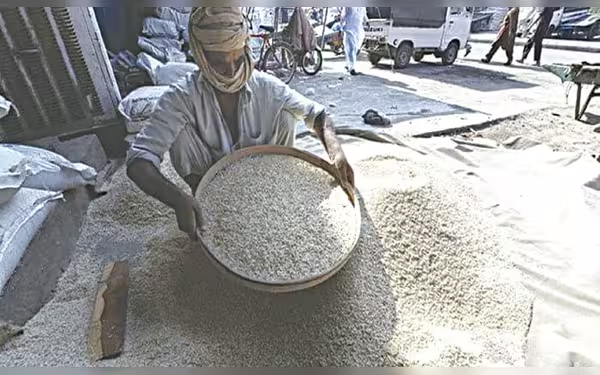Friday, October 4, 2024 12:29 PM
Pakistan Withdraws Minimum Export Price for Rice
- Minimum export price for rice officially withdrawn.
- Concerns raised over potential pricing war with India.
- REAP dissatisfied with unilateral decision by commerce ministry.
 Image Credits: dawn
Image Credits: dawnPakistan's Ministry of Commerce withdraws minimum export price for rice, raising concerns over competition and pricing wars with India.
In a significant development for the agricultural sector, the Ministry of Commerce in Pakistan has officially withdrawn the minimum export price (MEP) for rice. This decision, which comes after the MEP was introduced in November of the previous year, is expected to have far-reaching implications for the country's rice export market. The MEP was initially established to protect local exporters from fluctuating global prices and to ensure that they received fair compensation for their products. However, with the recent changes in the international market, the ministry has deemed it necessary to revoke this regulation.
The MEP was put in place as a response to the Indian government's ban on rice exports, which created a unique opportunity for Pakistani exporters. Indian exporters, particularly those based in Dubai, relied on Pakistani rice to meet their supply demands. However, with India lifting its export ban effective October 1, the landscape has shifted dramatically. The withdrawal of the MEP is anticipated to lead to a decrease in the export value of Pakistani rice and may encourage under-invoicing practices among exporters.
Shamsul Islam Khan, a rice exporter and commodities expert, has expressed concerns regarding the potential consequences of this decision. He believes that the withdrawal of the MEP could spark a pricing war between Pakistan and India, ultimately harming Pakistan's rice export value. Khan warns that the country may not receive the true value of its rice exports, leading to increased risks of transfer pricing and under-reported exports. This situation could place Pakistani exporters at a disadvantage, especially as Indian exporters have a significant production capacity for both coarse and basmati rice.
Prior to the ministry's decision, there was an agreement between the Trade Development Authority of Pakistan (TDAP) and the Rice Exporters Association of Pakistan (REAP) regarding minimum pricing for specific rice types. However, the unilateral decision by the commerce ministry to regulate MEP prices has left REAP dissatisfied, as the MEP for certain varieties was set higher than expected. The association has repeatedly called for adjustments to better reflect market conditions.
As the new REAP chairman prepares to take office, there is hope that he will address these pressing issues with the TDAP. Without the MEP, Pakistan faces the risk of not meeting last year’s export value, even with a promising harvest on the horizon. The official statement from the commerce ministry indicates that the withdrawal was made on the directives of Commerce Minister Jam Kamal, following a request from REAP. The ministry acknowledges that the MEP was initially introduced to counter rising global rice prices and India’s export ban, but with the current decline in international prices, it has become a hindrance for Pakistani exporters.
The withdrawal of the minimum export price for rice marks a pivotal moment for Pakistan's agricultural sector. While it may open doors for increased competition, it also poses significant risks for local exporters who may struggle to maintain their market share against Indian competitors. As the situation unfolds, it will be crucial for stakeholders in the rice export industry to adapt to these changes and seek new strategies to ensure their sustainability in the global market.













